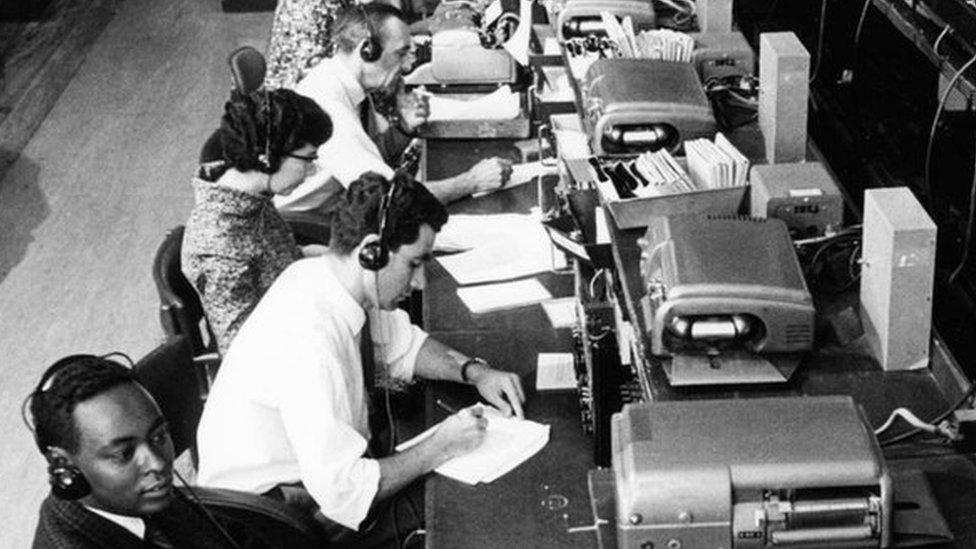BBC Monitoring: The ears that listened to history in the making
- Published
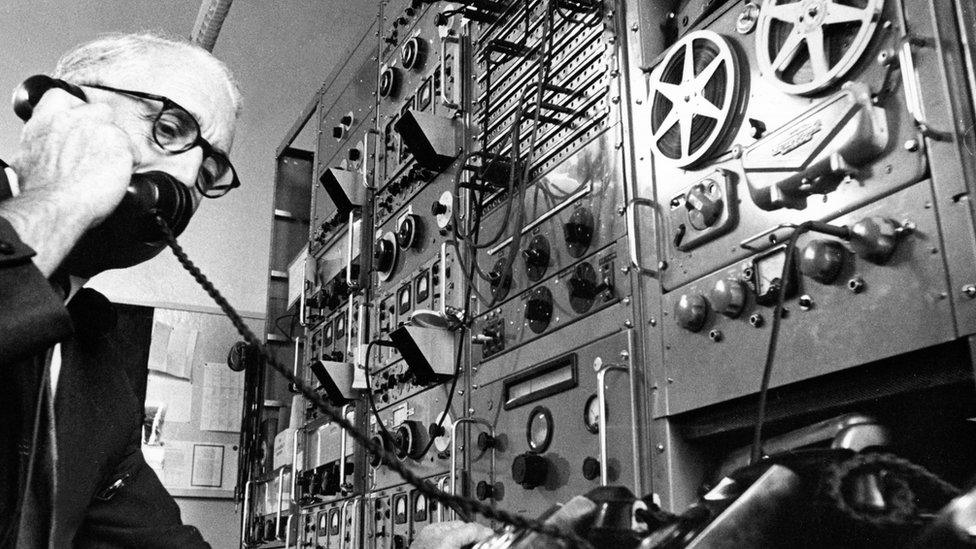
BBC Monitoring began in 1939 to allow the British government to access foreign media and propaganda
BBC Monitoring - the service which listens to, analyses, and summarises news from 150 countries in 100 languages for the corporation - is moving from its home of 75 years. Staff who worked at its grand base at Caversham Park recall being first to hear and report on some of the most seismic moments in history.

The Chernobyl disaster
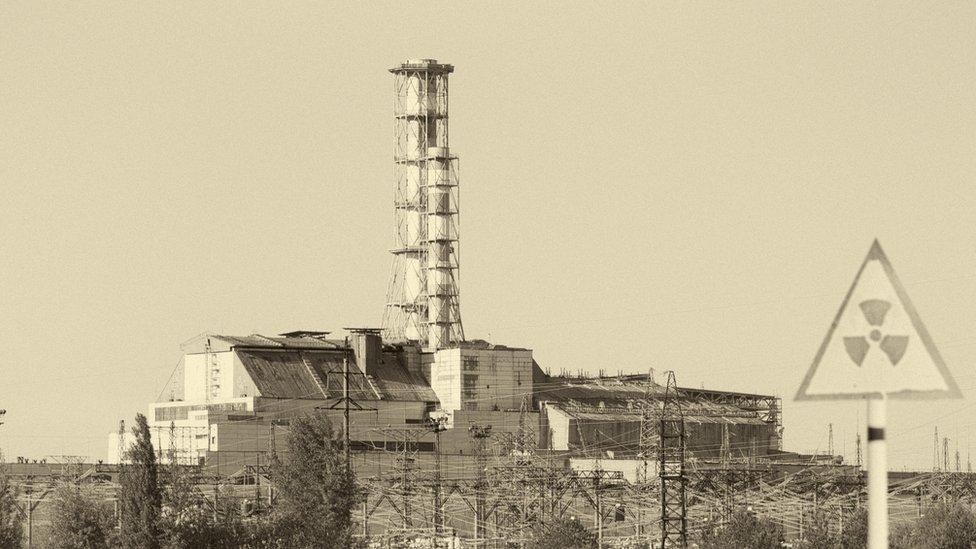
Chernobyl Nuclear reactor 4 exploded in 1986, causing widespread contamination
Chris Moseley had only been a monitor for 10 months when he said he became the "first person in the English speaking world" to hear about the world's worst nuclear disaster.
Listening to Swedish radio in April 1986, he heard reports of abnormal radiation coming from a nuclear plant in Lithuania.
"It then became evident that it was in Ukraine, that it was the Chernobyl reactor," said Mr Moseley, a monitor for 19 years.
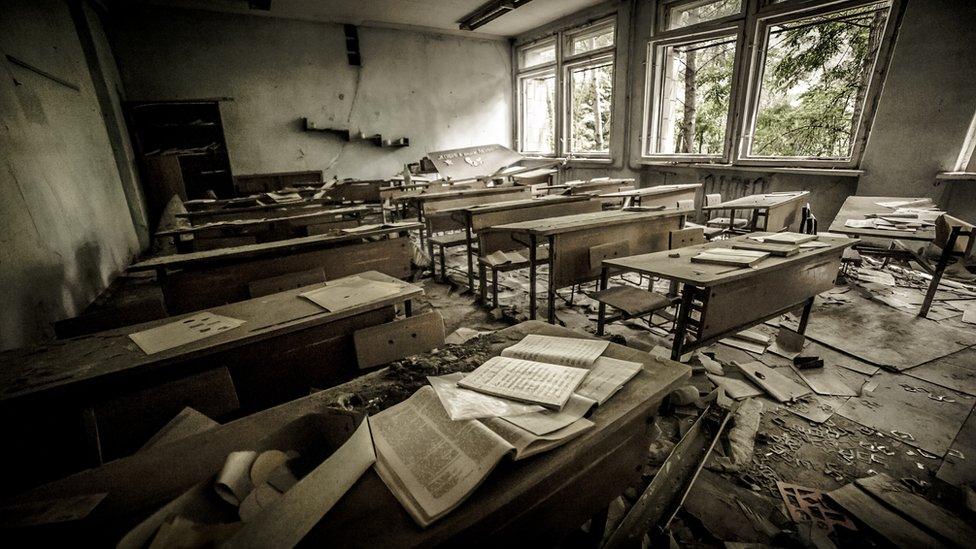
Thousands were evacuated from the neighbouring city of Pripyat after the explosion
It emerged one of four nuclear reactors at the Chernobyl power station had exploded, spewing a cloud of radioactive material that drifted into other parts of the then-USSR, including Russia and Belarus, and northern Europe.
Mr Moseley rushed to tell his supervisor about the unfolding events. His swift response meant the BBC reported the disaster two days before the Russians.
He says all monitors were trained to recognise significant news and to issue a "flash" typed up on carbon paper summarising what had been heard.
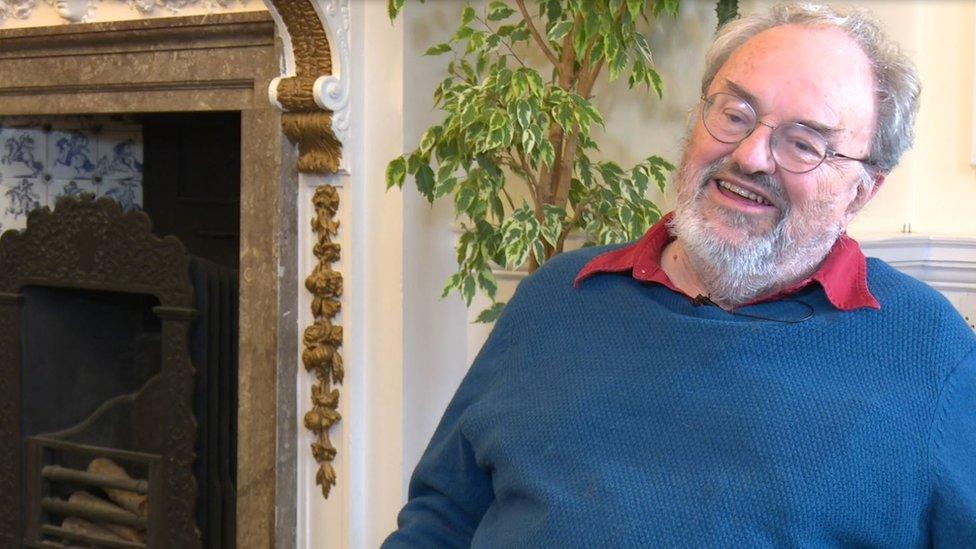
Chris Moseley worked for BBC Monitoring for 19 years
Bet Tickner, a supervisor from 1973 to 2004, recalls having to "look up the name" after reports revealed it was Chernobyl, because "we had never heard of it".
She added: "[The reports] didn't say it was an atomic power station. It [came] sort of from nothing almost, and often the big news is like that.
"Sometimes you're waiting, expecting, big news like an election. But then there's some things that come out the blue and the great thing about being a monitor is that you are the first one to know that."
The fall of the Berlin Wall
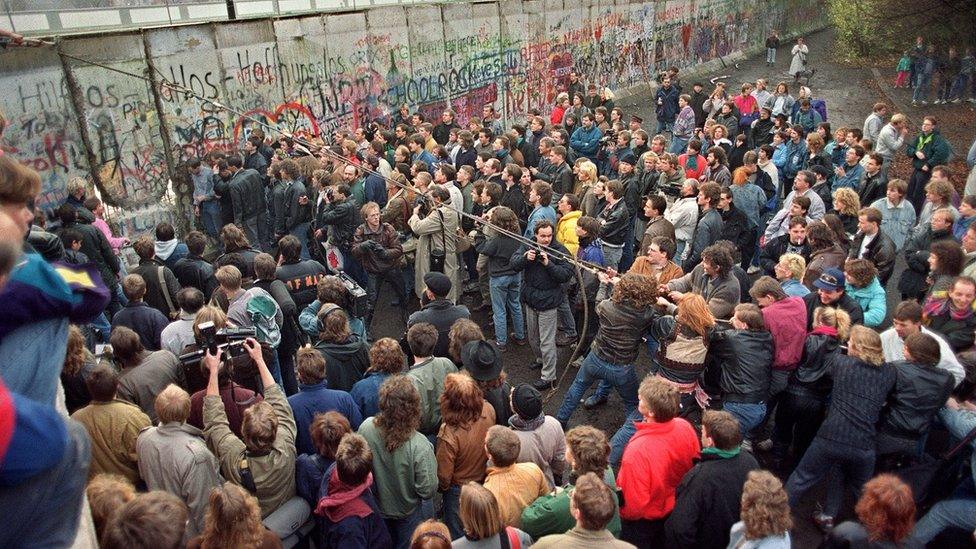
Crowds gathered as the Berlin Wall was torn down on 11 November 1989
For those in Monitoring's Eastern European teams, the fall of the Berlin Wall and communism was a "highlight", says Jonathan Dart, a monitor from 1987 to 1994.
On 9 November 1989, Mr Dart and colleague Kathy Mcaleer listened as the border between the east and west was torn down, bringing an end to the segregation enforced since 1961.

You might also be interested in

They could not actually see the wall coming down as they were listening to German radio and voice-only television feeds, so relied on the descriptions of foreign broadcasts.
"I will never forget Jonathan tearing the news agency story from the printer and saying 'that's it' before immediately going to translate it," said Ms Mcaleer.
"It was completely unforgettable."
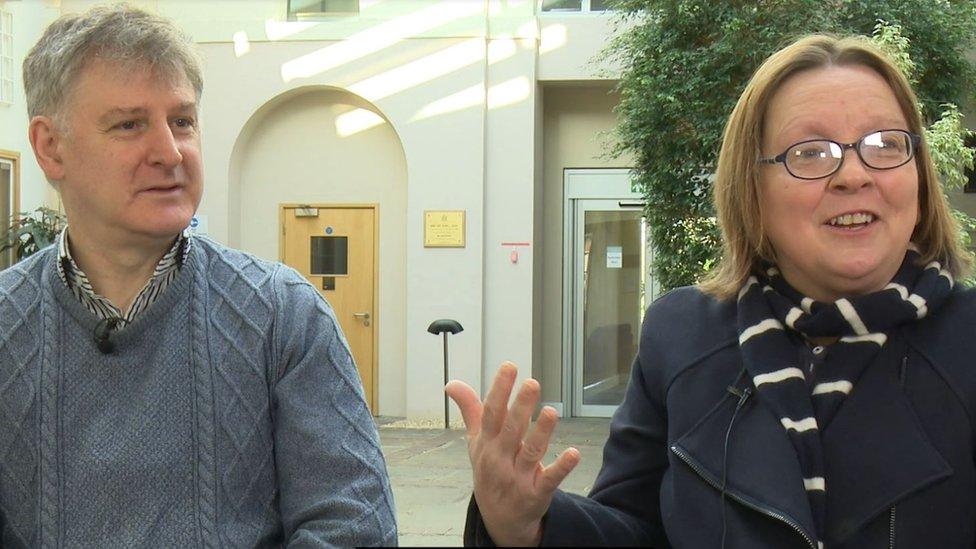
Jonathan Dart and Kathy Mcaleer both worked on the German news team
The monitoring team missed out on the iconic images of the Mauerspechte [the wall peckers], chipping bits off the wall for souvenirs, but were one of the first to translate the news of its fall.
"You very rarely get to deal with a story that is absolutely historic [everywhere] in journalism," added Mr Dart.
The Arab Spring
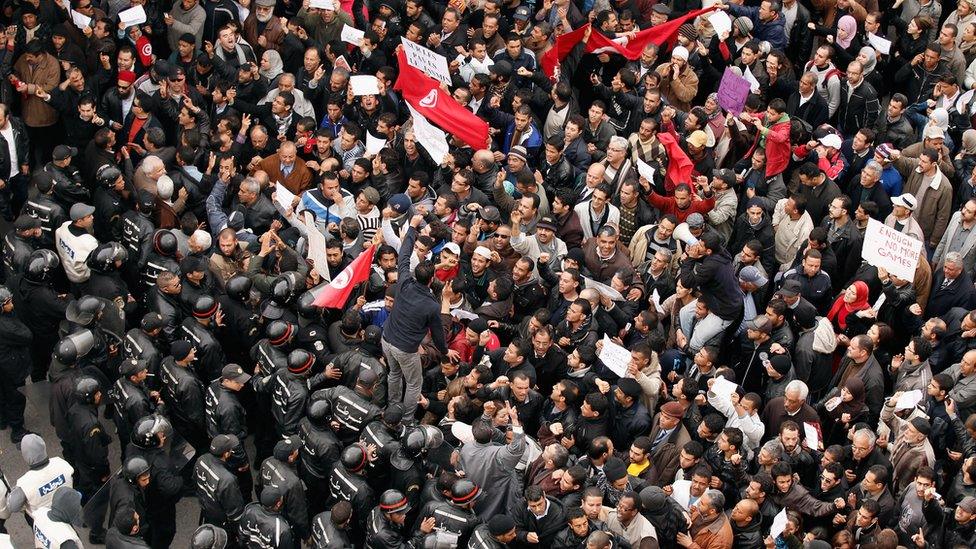
Tunisian police tried to stop crowds of protestors
Sarah Fowler was monitoring Arabic media reports when the international political upheaval in the Middle East and north Africa unfolded in 2010.
She described listening to reports of the downfall of Tunisia's President Zine al-Abidine Ben Ali, and the subsequent uprisings in the Arab world, as "a baptism of fire".
"It was a crazy time to be joining that team and a crazy time in the world of monitoring and across the world really," said Ms Fowler, who had followed in her mother's footsteps to work as a monitor.
"All eyes were kind of on the Arab media and all eyes were therefore on us.
"So it was quite frightening as a new joiner to sort of be thrust into the limelight in that way, but really exciting and that was just the beginning of it."
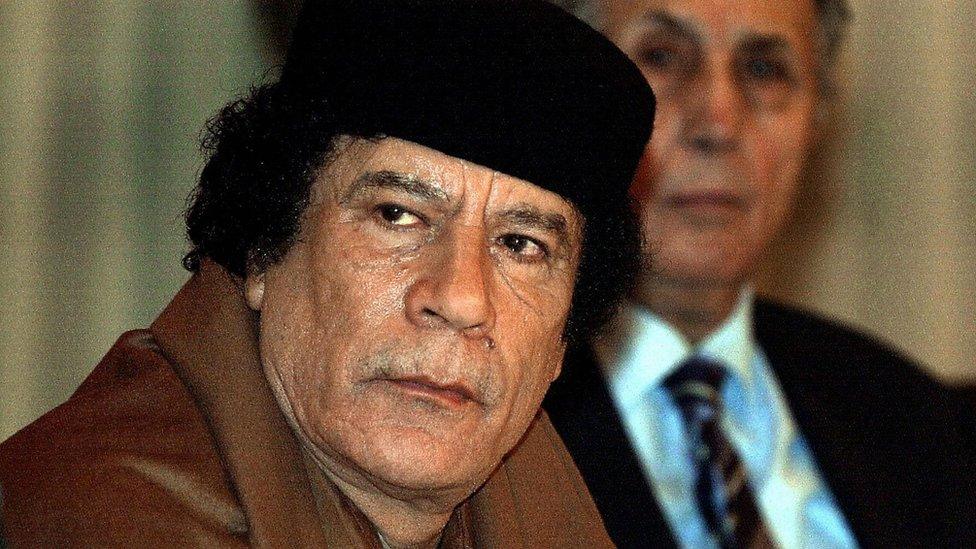
Colonel Gaddafi's capture was reported by BBC Monitoring
As more nations revolted against regimes Ms Fowler describes how "emotions were raw" among colleagues, some of whom were from or had family in the countries affected.
She recalled listening to a speech by Colonel Gaddafi before his capture, noting down what he had said, and being rushed on to BBC Radio 5 live to talk about it.
"He was talking about capturing the rats in the streets, [when] referring to the rebels.
"It was one of those historical moments... that I will never forget."
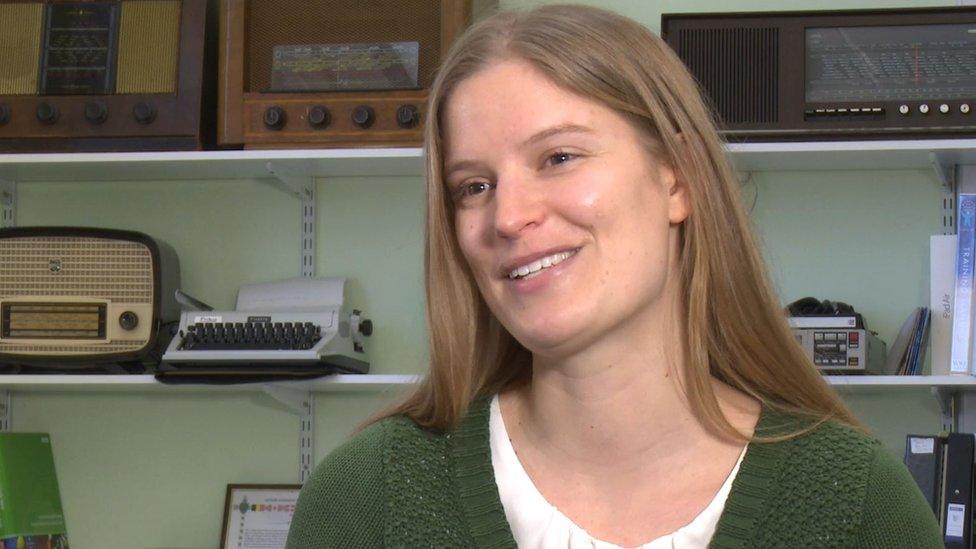
Sarah Fowler worked for BBC Monitoring between 2009 and 2013
But, she added, a far bigger day for her was when the former Libyan leader was captured, as she was one of the first people to see news of him being taken by rebels.
"You are one of the first people in the English-speaking world to sort of see these events, these historical events of high significance unfolding.
"To know you were one of the first people to see that happening is incredible."

What is BBC Monitoring?
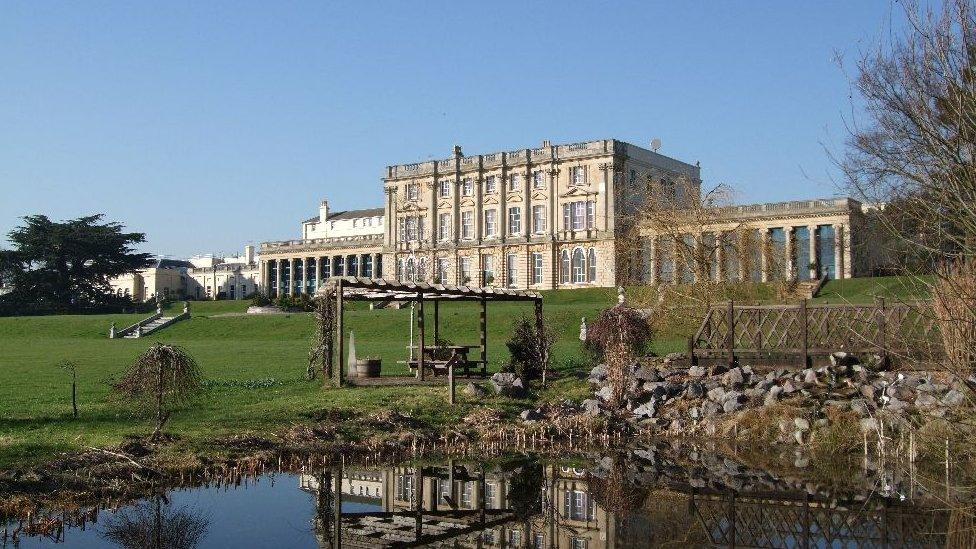
Caversham Park has been the home of BBC Monitoring for 75 years
BBC Monitoring launched in 1939 at the outbreak of World War Two
Its primary purpose was to inform the War Office of broadcasts by Nazi-controlled media outlets
During the war, staff would compile an 80,000-word document from 240 broadcasts called the Daily Digest to be sent to London
More than 1,000 people worked at the 93-acre Caversham Park estate in Berkshire by 1945
It was deemed a suitable base for the team because it was less likely to suffer bomb damage
Events such as Hitler's death and the Cuban Missile Crisis were among those heard first by the corporation's "monitors"
After 75 years, staff will no longer be listening from the rooms of the Grade-II listed building, which is recorded in the Domesday Book
It will continue its work from a new base in London
- Published23 May 2018

- Published20 May 2018

- Published29 June 2017
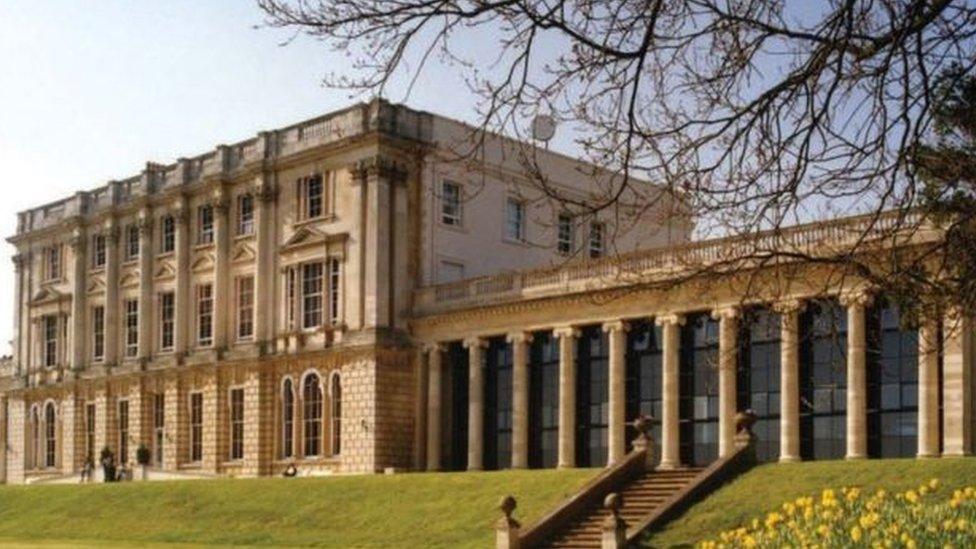
- Published27 June 2017

- Published7 July 2016
